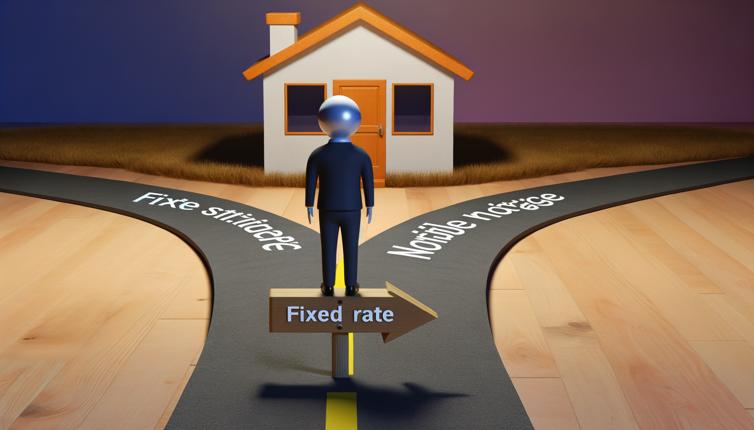What is a Fixed Rate Mortgage?
A fixed rate mortgage is a type of home loan where the interest rate remains the same for the entire term of the loan. This means that your monthly mortgage payments will also remain constant over time. Fixed rate mortgages are popular because they provide stability and predictability. You'll always know exactly how much you need to budget for your mortgage payment each month.,One of the main advantages of a fixed rate mortgage is that it protects you from rising interest rates. If interest rates go up in the future, your mortgage rate and monthly payment will stay the same. This can provide peace of mind and make it easier to plan your finances.,However, one drawback of a fixed rate mortgage is that you may end up paying more in interest over the life of the loan compared to a variable rate mortgage. This is because fixed rate mortgages typically have higher interest rates initially. If interest rates decrease in the future, you won't be able to take advantage of the lower rates unless you refinance your mortgage.,Overall, fixed rate mortgages are a good option if you value stability and want to know exactly how much you'll be paying each month. They can be especially beneficial if you think interest rates may rise in the future.
What is a Variable Rate Mortgage?
A variable rate mortgage, also known as an adjustable rate mortgage (ARM), is a home loan where the interest rate can change over time. These mortgages typically have an initial fixed-rate period, usually 3, 5, 7, or 10 years, after which the rate becomes adjustable. The adjustment period can vary, but is often once a year.,The initial interest rate on a variable rate mortgage is usually lower compared to a fixed rate mortgage. This can make the initial monthly payments more affordable. However, once the fixed-rate period ends, the interest rate can fluctuate with market conditions. This means that your monthly mortgage payment could increase if interest rates go up.,One of the benefits of a variable rate mortgage is that you could take advantage of lower interest rates in the future. If interest rates decrease, your mortgage rate and monthly payment will also decrease, potentially saving you money. However, the opposite is also true – if rates increase, your monthly payment will go up.,Variable rate mortgages may be a good option if you expect interest rates to remain low or even decrease in the future. They can also be beneficial if you plan to sell your home before the fixed-rate period ends.
Which Type of Mortgage is Right for You?
Deciding between a fixed and variable rate mortgage depends on your individual financial situation and personal preferences. Here are a few factors to consider when making your decision:,1. Interest Rate Outlook: If you expect interest rates to rise in the future, a fixed rate mortgage may be the better choice. This will protect you from potential rate increases and provide stability.,2. Budget and Cash Flow: If you prefer a predictable monthly payment that won't change over time, a fixed rate mortgage is a good option. This can make it easier to budget and plan your finances.,3. Time Horizon: If you plan to stay in your home for a long time, a fixed rate mortgage can provide peace of mind knowing that your payment won't increase. On the other hand, if you plan to sell your home before the fixed-rate period ends, a variable rate mortgage could be a better fit.,4. Risk Tolerance: If you're comfortable with a certain level of risk and are willing to take a chance on potentially lower interest rates in the future, a variable rate mortgage may be worth considering.,To make the best decision, it's important to carefully evaluate your financial situation and consult with a mortgage professional. They can help you weigh the pros and cons of each type of mortgage and determine which option is right for you.
Conclusion
Choosing between a fixed and variable rate mortgage is an important decision that can have a big impact on your financial well-being. While fixed rate mortgages offer stability and predictability, variable rate mortgages provide the opportunity to take advantage of lower rates in the future. Consider your personal financial goals and consult with a mortgage professional to make the best choice for your needs. Good luck!









